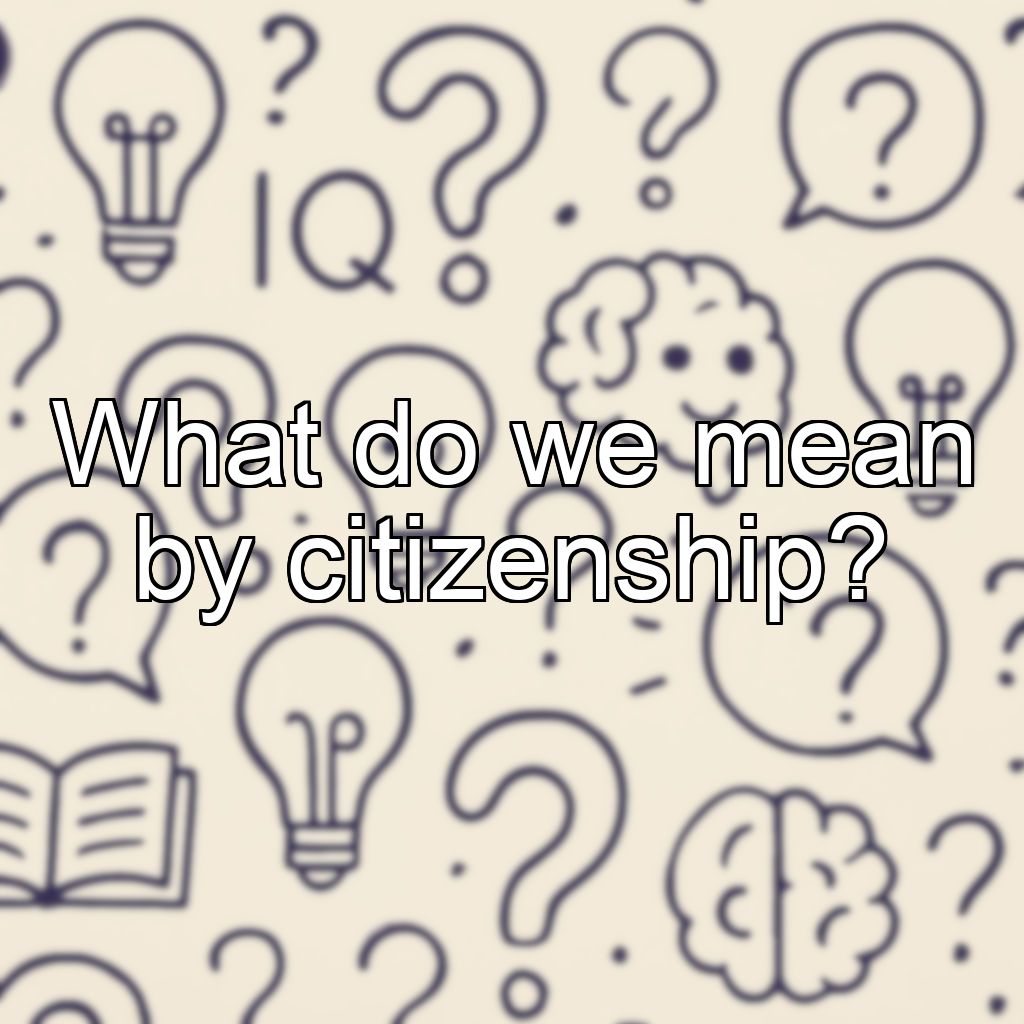What do we mean by citizenship?

Understanding Citizenship
Citizenship refers to the legal status and relationship between an individual and a state or nation. It encompasses the rights, duties, and privileges granted by the state to its citizens, as well as the individual's allegiance to that state.
Main Aspects of Citizenship
- Legal Status: Citizenship is a formal recognition by a government that a person belongs to that state. It often comes with documentation, such as a passport or national ID.
- Rights: Citizens typically enjoy certain rights, such as the right to vote, work, reside in the country, and receive protection from the government.
- Duties and Responsibilities: Along with rights, citizens have responsibilities, such as obeying laws, paying taxes, and sometimes serving in the military or on juries.
- Identity and Participation: Citizenship also often signifies a sense of belonging and participation in the political, social, and cultural life of a country.
Types of Citizenship
- Birthright Citizenship: Acquired automatically by being born within a country or to parents who are citizens.
- Naturalization: Acquired by fulfilling certain legal requirements, such as residency and language proficiency, for those not born as citizens.
In summary, citizenship is both a legal status and a social identity, defining the relationship between an individual and their country.